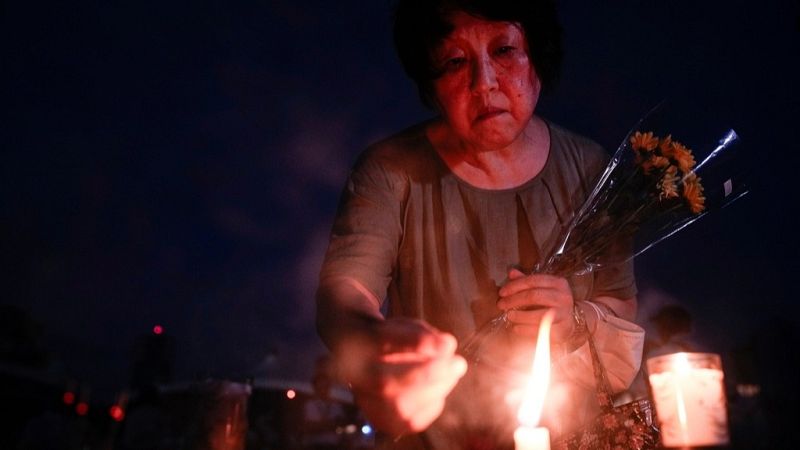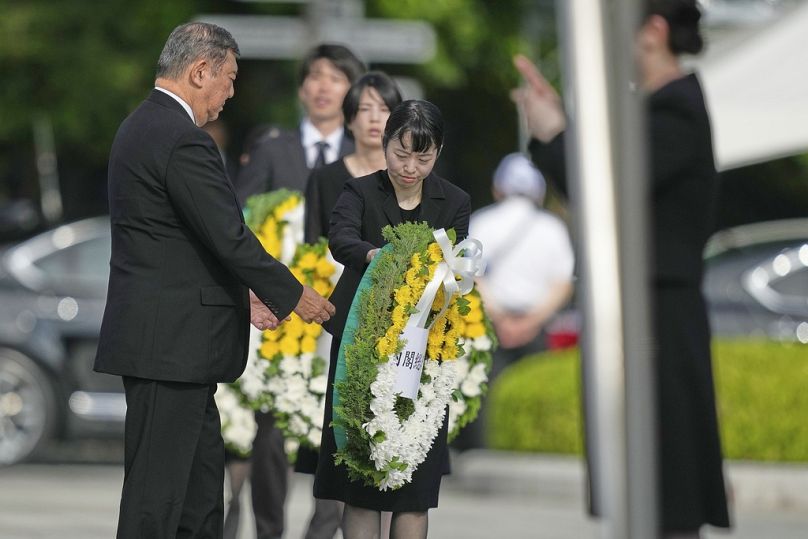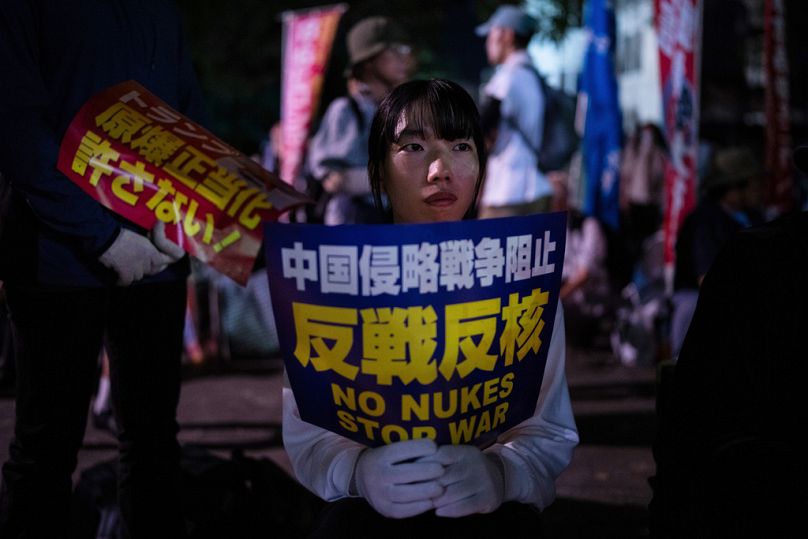Hiroshima marks 80th anniversary since US atomic bombing of the city

The southwestern Japanese city of Hiroshima on Wednesday marked the 80th anniversary of the US atomic bombing of the city. Many aging survivors attending the memorial service expressed frustration over the growing support amongst global leaders for nuclear weapons as a deterrence.
With the number of survivors in rapid decline, and their average age now exceeding 86, this is considered the last major milestone memorial event for many of them.
“There will be nobody left to pass on this sad and painful experience in 10 years or 20 years,” Minoru Suzuto, a 94-year-old survivor, said after he kneeled down to pray at the cenotaph. “That’s why I want to share (my story) as much as I can.”
Hiroshima Mayor Kazumi Matsui warned against a growing acceptance of military buildups and of using nuclear weapons for national security amid Russia's invasion of Ukraine and conflicts in the Middle East, with the United States and Russia possessing most of the world's nuclear stockpiles.
“These developments flagrantly disregard the lessons the international community should have learned from the tragedies of history,” he said. "They threaten to topple the peacebuilding frameworks so many have worked so hard to construct.”
He urged the younger generations to realise that such “misguided policies” are capable of causing “utterly inhumane” consequences for their future.
“We don't have much time left, while we face a greater nuclear threat than ever,” said Nihon Hidankyo, a Japanese grassroots organisation of survivors that won the Nobel Peace Prize last year for its pursuit of nuclear abolishment.
“Our biggest challenge now is to change, even just a little, nuclear weapons states that give us the cold shoulder,” said the organisation in a statement.
More than 50,000 people, including representatives from a record 120 countries and regions, including Russia and Belarus were expected to attend the memorial ceremony.
A minute of silence was held while a peace bell rang at 08:15 am local time, the time when a US B-29 aircraft dropped the bomb on the city.
Japanese Prime Minister Shigeru Ishiba, Hiroshima’s mayor and other officials laid flowers and wreaths at the cenotaph. Dozens of white doves, a symbol of peace, were released after the mayor’s speech.
Speaking at the ceremony, Ishiba reiterated his government’s pledge to work toward a world without nuclear weapons.
“As the only country capable of conveying the horrors of the atomic bomb to the world, we will pass down the memory of this tragic experience and lead international efforts to prevent such a calamity from happening again,” said Ishiba in a post on X.
The bombing of Hiroshima destroyed the city and killed 140,000 people. The US dropped “The Little Boy” atomic warhead on the city on 6 August, 1945. A slightly bigger bomb, named “The Fat Man” was dropped just a few days later on Nagasaki, killing 70,000 people.
The two instances are the only times nuclear weapons were used during war. Japan surrendered on 15 August, 1945, ending World War II and with it Japan’s nearly half a century of aggression in Asia.
Today



